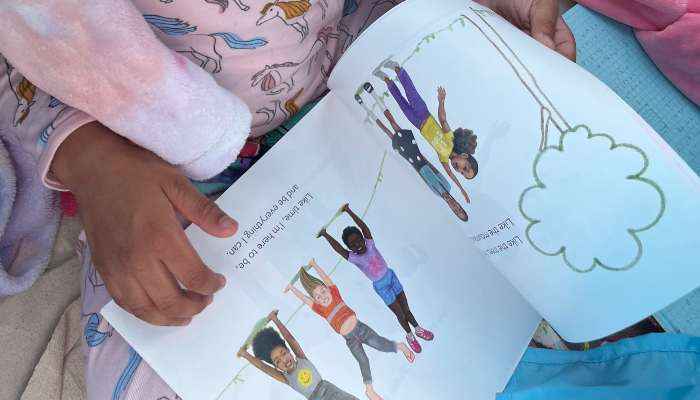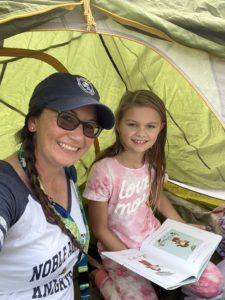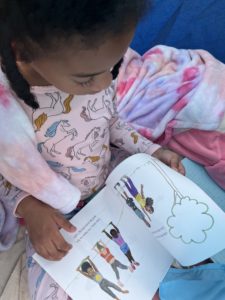By Guest Blogger Aimee Gandee, Director of Educational Outreach of Noble Academy
Reading Research: What you need to know about education and the acquisition of reading skills.
Schools are all abuzz with what appears to be the latest in teaching students how to read. Maybe you’ve heard of it? The Science of Reading. Those words seem to be immersed in conversations about education at every level, as well as in the classroom your child is currently learning in. The truth is, The Science of Reading has been around for quite some time. It isn’t a new program being implemented in your child’s classroom/school. It isn’t even a reading program. The SoR is the collective body of research that helps us understand the underlying cognitive processes and knowledge, as well as essential teaching practices required in order for students to develop reading skills. If you know anything about research, sometimes it takes years for the findings of research to be put into practice in an effective and meaningful way.
Structured Literacy
It is really quite simple. There are five areas of reading that need to be embedded in your child’s curriculum in order for them to become an efficient and effective reader: Phonemic Awareness, Phonics and Word Study, Fluency, Vocabulary, and Comprehension. This evidence based approach is known as Structured Literacy. How does one know what Structured Literacy is supposed to look like if you do not work in the field of education or reading research? This very helpful graphic distributed by the International Dyslexia Association (IDA) will lay out the Who, What, How, and Why behind Structured Literacy. Who should be educating your child in reading? What should be taught? How should it be taught? And why is it being taught?
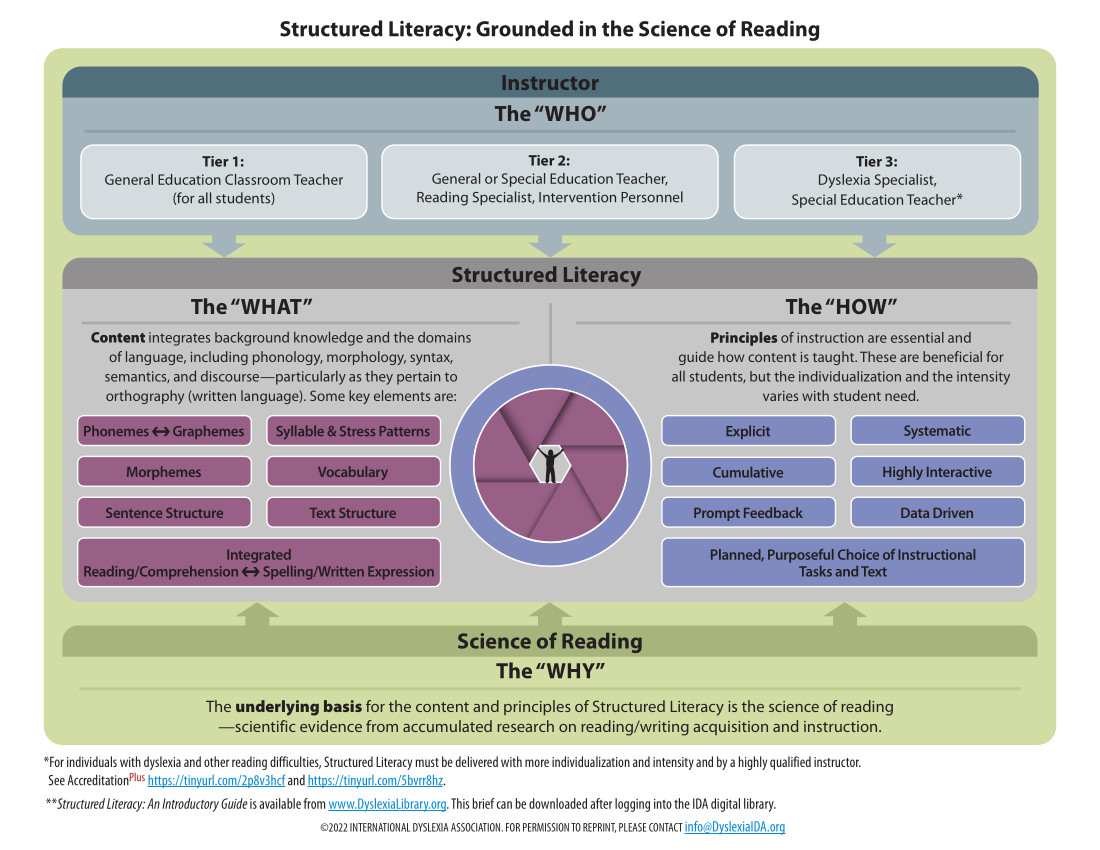
Let me be clear. This type of instruction is good for ALL learners and as you can see, the graphic includes all types of learners and their learning environments. Reading with comprehension at grade level doesn’t just ‘happen’. Take a look at the image of the Scarborough Reading Rope for a sneak peak into what really goes into reading. (see below)

Aligned Reading Curriculum
Another component of effective reading instruction is continuity in research based instruction and curriculum across grade levels. For example, if your child’s first grade teacher uses program X for reading instruction and their second grade teacher uses program Y, you may see a slow down in progress for your child. Every time a new curriculum is introduced the student needs to learn the vocabulary or lingo associated with the instructional principles. There is an additional learning curve under these circumstances that could be avoided by creating vertical alignment with curriculum across grade levels.
At Noble Academy we utilize the Wilson Reading SystemⓇ. WilsonⓇ is a research based curriculum that addresses all areas of reading, follows a consistent scope and sequence, and is taught to mastery. The WRS is a tier three intervention designed to teach students with dyslexia and language based learning disabilities how to read. It requires highly trained teachers with a sophisticated knowledge of the structure of English. WilsonⓇ also offers programs for the general education classroom setting as well as the tier 2 intervention model. Utilization of these programs provides the consistency in curriculum, program implementation, and vocabulary that is so important for students who have to transition from one setting to another based on their needs.
Take Initiative To Create Your Child’s Ideal Learning Environment
As you are thinking about your child as a learner, and exploring their learning environment, you can never go wrong asking some questions about what curriculum is being utilized, what research base stands behind it, and if it is part of a structured literacy plan that offers a multi-tiered system of support (MTSS) for all students which provides the continuity you are looking for.
To learn more about Noble Academy and their WilsonⓇ tutoring opportunities or to schedule a tour, visit nobleknights.org or their Facebook and Instagram sites.
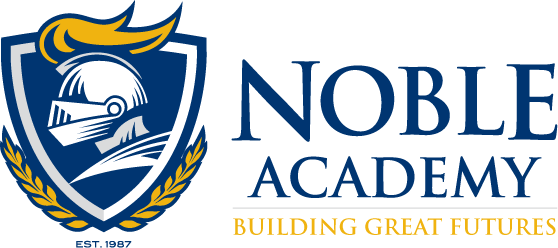
*Sponsored by Noble Academy

